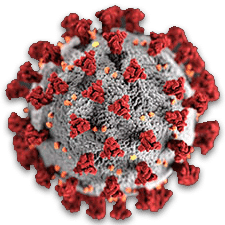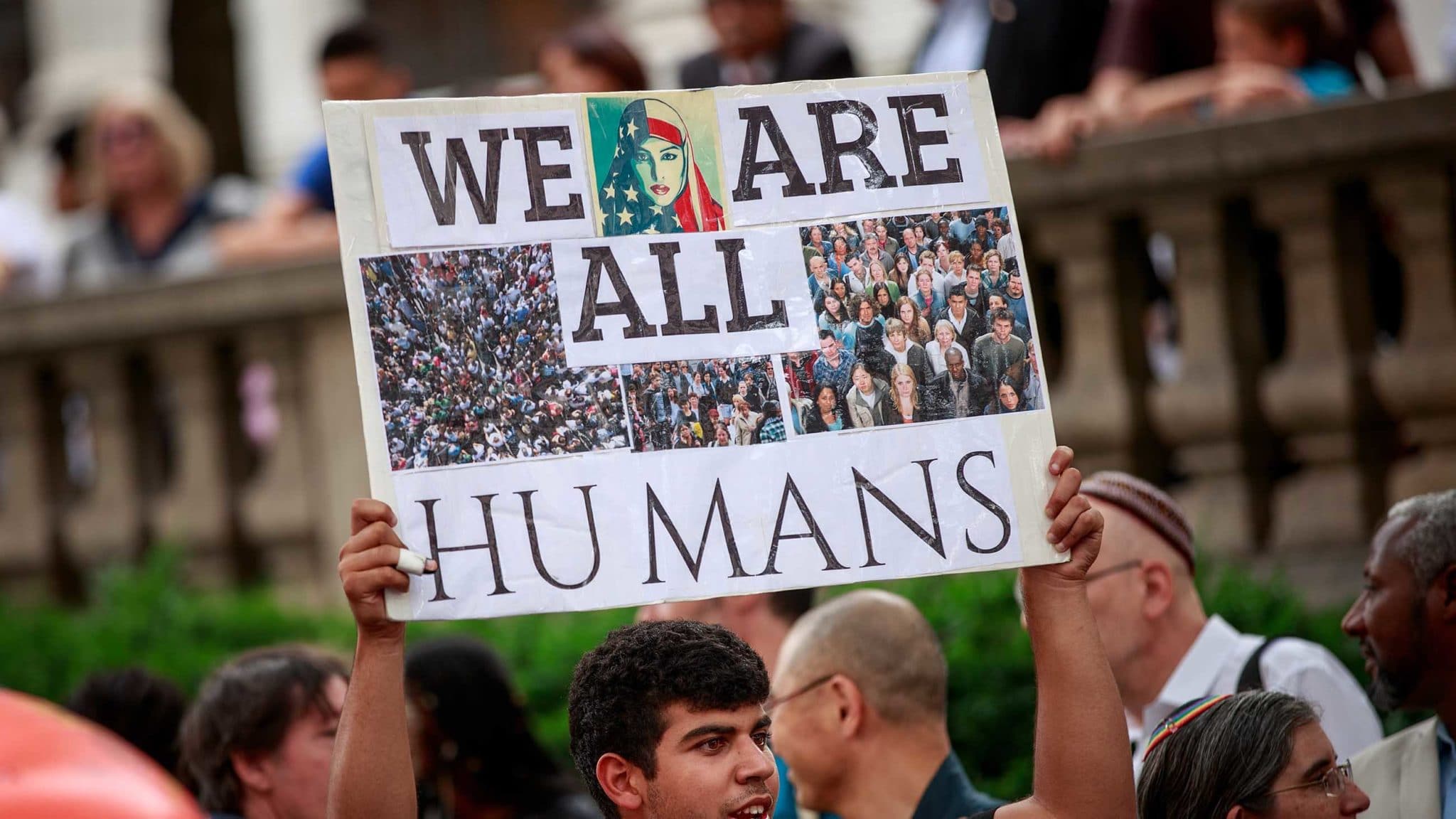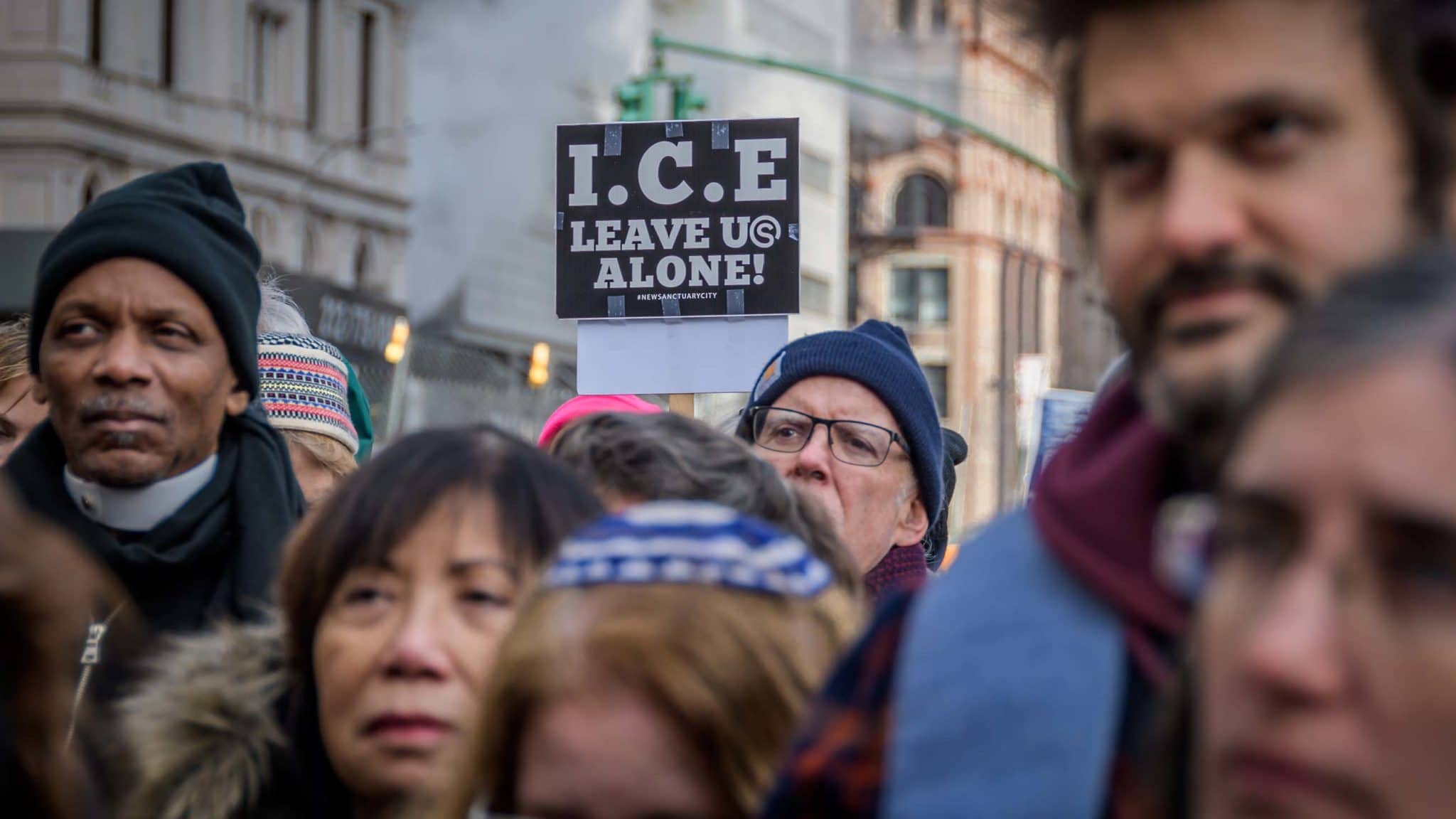The novel coronavirus’ rampant spread throughout the U.S. has government leaders encouraging families to stay at home, see doctors when ill, and practice social distancing to curb spread of the disease. For those who have the means, social distancing simply means working from home and keeping well away from others on the occasional trip to the store for supplies. But the low-income people who make that task easy for most of us — such as our essential grocery store clerks and truck drivers — cannot afford to do so themselves.
It should come as no surprise, then, that historically, pandemics have disproportionately affected the poor and working class. The threat of losing jobs, lack of access to adequate health care, and a limited social safety net means many working poor will continue to show up for their job despite any illness. It also means that when businesses decide to circle the wagons and massive layoffs come, these poorest communities are the first to face financial ruin.
 |
Thoughts or questions on Covid-19? |
This is already tragic, but there’s one more characteristic of this already vulnerable cohort that is worth considering: A disproportionate number of them belong to a group long-vilified by the Trump administration — immigrants.
Immigrant families are more likely to be low-income or live in poverty, making them especially vulnerable to coronavirus. Many heads of household work in low-skilled jobs. Language barriers limit communication with increasingly stressed hospitals and connection with social workers aiming to help during difficult times. Furthermore, both legal and illegal immigrants are fearful of using available social services — notably Medicaid — based on ever-changing restrictive immigration policies.
As doctors and immigrants ourselves, we know that their fears are warranted. Immigrant parents of children in pain — both documented and undocumented — often call our hospital clinics with requests to complete care without full examinations, terrified of potential legal ramifications. Undocumented families are concerned with the chance of deportation and family separation; families with visas are concerned with remaining in the United States.
On February 24 — even with the full scope and threat of the Covid-19 pandemic already in plain view — U.S. Citizenship and Immigration Services, an agency within the Department of Homeland Security, implemented what’s known as the “public charge” rule, a policy that determines immigration eligibility based on the likelihood of a person using social services, such as housing vouchers and food stamps. The rule holds that if an applicant claims one or more public benefits for a period greater than a year, they fall under consideration as a “public charge” and can be denied visa extensions or a green card.
The late-February implementation of this rule was met with immediate and impassioned backlash from immigration advocates, public health experts, and many Democratic lawmakers, who argued that the policy would effectively dissuade many immigrant families from seeking treatment should they become ill, and that Trump administration officials should suspend the rule during the pandemic. In response, immigration officials said in mid-March that they would “neither consider testing, treatment, nor preventative care” related to Covid-19 when determining an immigrant’s application for residency.
This is only fair, but as doctors, we realize the principles of disease mitigation encompass more than the provision of health care. Given their limited resources and a fear of accessing essential public services, immigrants are already less likely to receive appropriate care for conditions such as heart disease, lung disease, hypertension, and diabetes, increasing the risk of mortality from Covid-19.
The corollary of a plummeting economy and skyrocketing unemployment rates is an increase in reliance on social services. Poor immigrants, facing indefinite joblessness, cannot practice social distancing without a stable income nor source of food. Public assistance, in such cases, can become a matter of true survival, and yet the public charge rule forces immigrants to make a uniquely hard-pressed decision: either rely on government assistance and risk a public charge ruling or continue to work with the possibility of becoming ill and transmitting disease.
Immigration officials, in clarifying their rules, have said that any immigrants who need to rely on social services due to layoffs, school closures, or other events related to the Covid-19 pandemic, “can provide an explanation and relevant supporting documentation,” when applying for visa renewals or other residency extensions. “To the extent relevant and credible,” the policy update continues, “USCIS will take all such evidence into consideration in the totality of the alien’s circumstances.”
That may sound generous to you, but to any “alien,” such assurances ring hollow.
During coronavirus uncertainty, the continued enforcement of the public charge ruling will only hamper public health efforts by preventing immigrants from seeking essential services that can help them protect both themselves and others from Covid-19. Many lack the ability to do paid work from home or the disposable income to hire help to take care of children whose schools are closed. And for those who may be able to stay home, their housing status may be put at risk because they’ve lost their jobs or hours as a result of small business closures during the pandemic.
Many of these immigrants — rightly distrustful of an administration that has vilified them for years — will be forced into a complement of impossible choices: They can roll the dice and seek out public benefits so that they can stay at home, mind their children, and feed their families during this pandemic; or they can continue to work or seek work — even if they are ill — in order to avoid a system designed to discourage seeking help.
No one should have to face this decision.
An effective public health response requires that the federal government fully suspend the public charge rule for the duration of the Covid-19 pandemic at the very least. Infectious diseases don’t discriminate; we are only as strong as the most fragile and vulnerable amongst us. Flattening the curve only works when everyone is empowered to safely stay at home.
Suspending the public charge rule during the pandemic would be a small but significant step in protecting the most vulnerable and reducing spread of the disease. It also would give us and our health care system a fighting chance to protect all of you.
Joseph K. Yun is a resident pediatric dentist at Children’s Medical Center Dallas and a health policy researcher at Texas A&M University.
Nisarg A. Patel is a resident physician in oral and maxillofacial surgery at the University of California, San Francisco and a former researcher at the Petrie-Flom Center for Health Law Policy, Biotechnology, and Bioethics at Harvard Law School.











